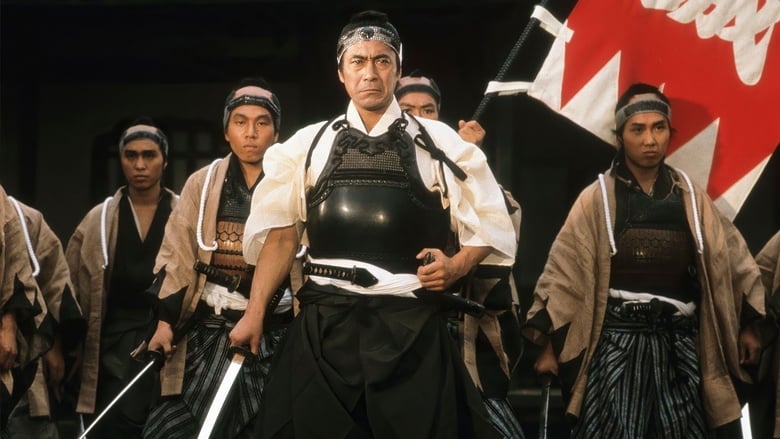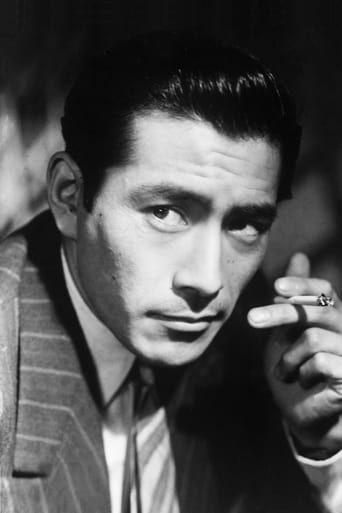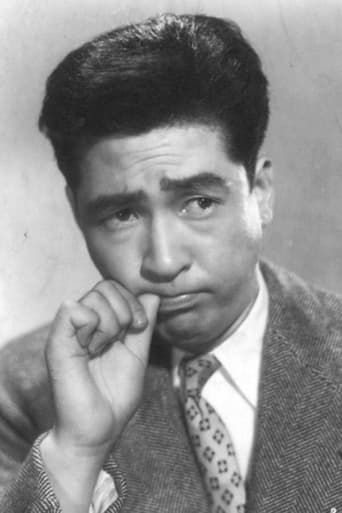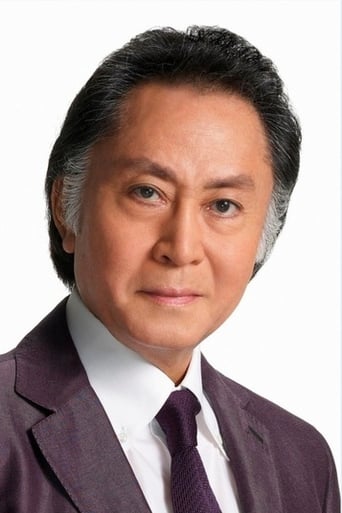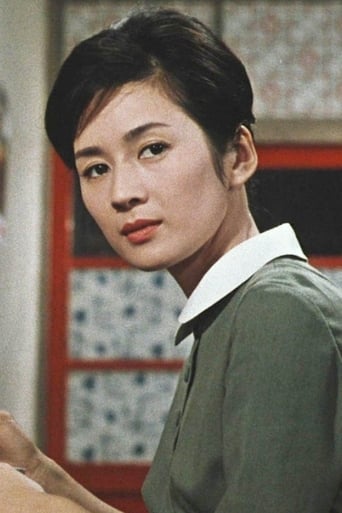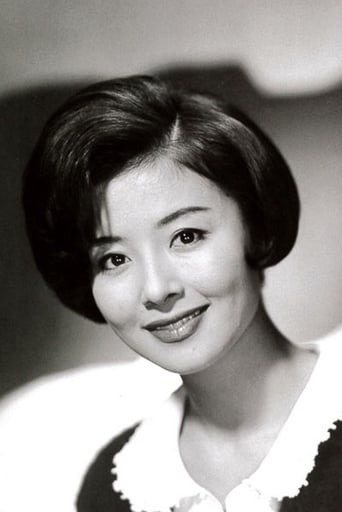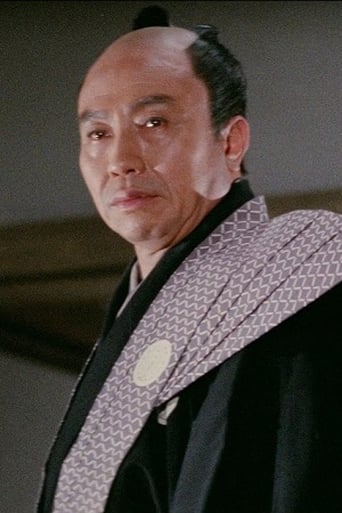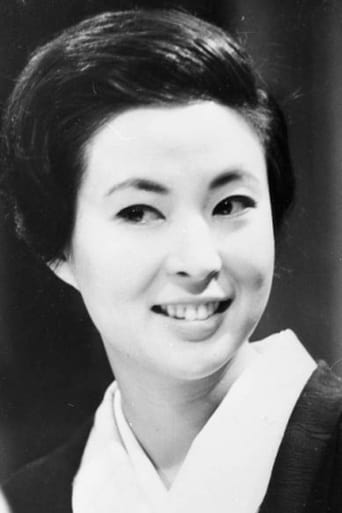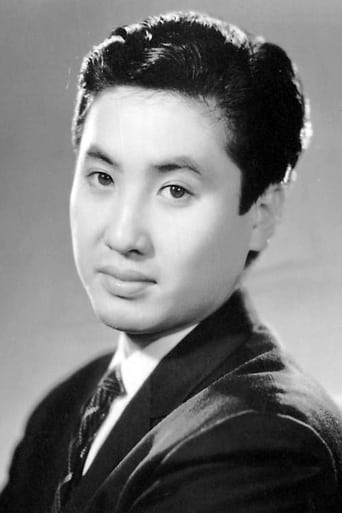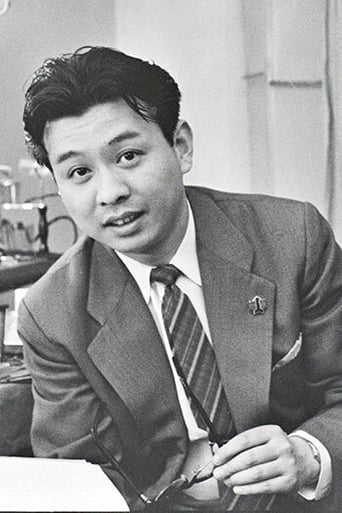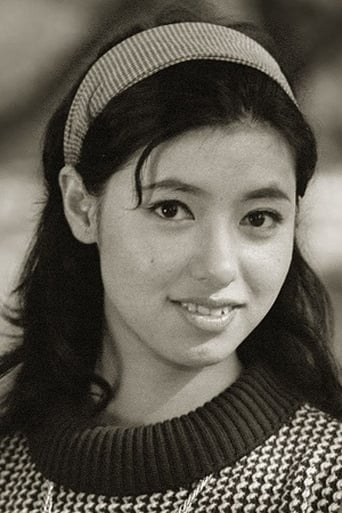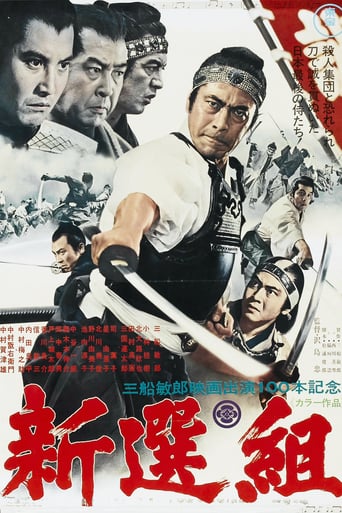
Near the end of the nineteenth century, as the balance of power shifts from Shogunate towards the Emperor, Japan restlessly awaits the dawning of a new age. But not all are content...The Shinsengumi, a small army of samurai, farmers and peasants, band together to do battle against the tide of history. Their leader, Isami Kondo is a man who rises from farmer to fighter to head the fierce Shinsengumi brigade. Using a stern hand and a heart of gold, he rallies his men in defense of the tottering Shogunate. But bloodshed and treachery lurk around every corner.
Similar titles
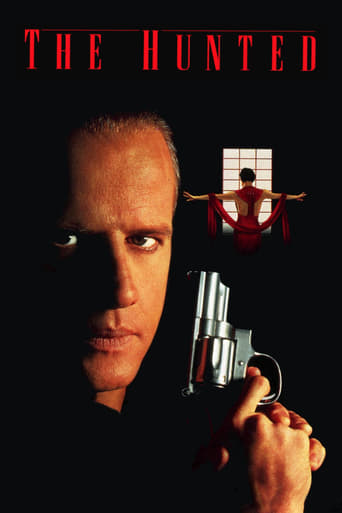
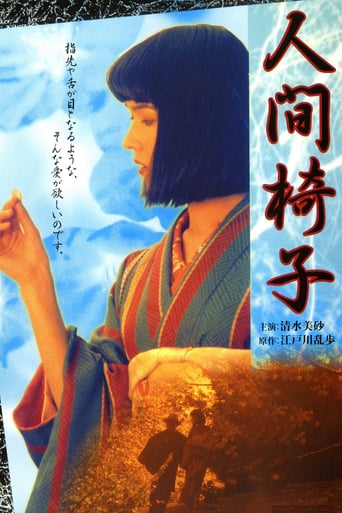
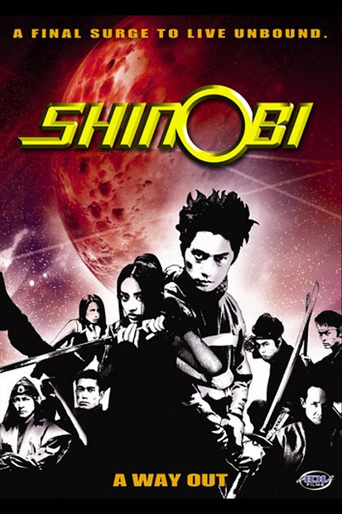
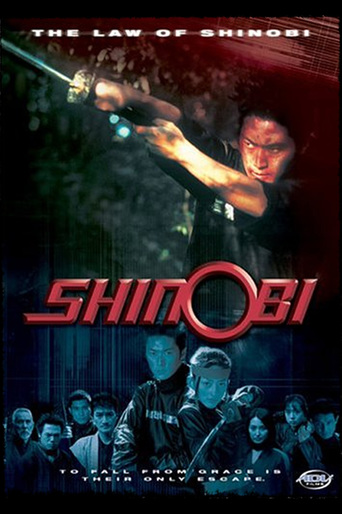

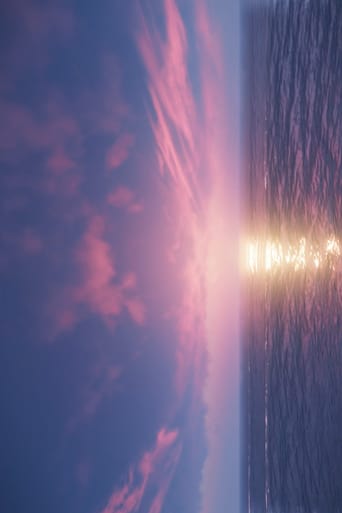
Reviews
To me, this movie is perfection.
Good concept, poorly executed.
The performances transcend the film's tropes, grounding it in characters that feel more complete than this subgenre often produces.
An old-fashioned movie made with new-fashioned finesse.
Before I write about the movie, it's important to explain a bit about the DVD. Like some anime shows, this Japanese movie has amazing captioning. When multiple people are talking, the text appears in various colors so it's easy to know who's saying what. But I was especially impressed that while they do a very, very good job translating, like some anime, there are little explanatory notes at the top of the screen that appear to explain what is happening. That way, Westerners who watch this understand the context for what is occurring--at least to a point. I the quality captioning but still think that some, particularly those not acquainted with Japanese history and films, will be a bit confused from time to time (especially which side is which). I know I was--and I am pretty knowledgeable about the history and have seen quite a few other films about this important time period in Japanese history. So, if you see the film, try reading through the program notes in the special features--it helps explain things quite a bit.This film is set during the Meiji period in Japan. During the 1860s, Japan was changing rapidly as a result of the opening of Japan thanks to Admiral Perry's visit in the 1850s. Perry forced the country to open up to foreigners--something that had been banned for about 200 years. But, many in Japan longed for the old ways and a serious struggle ensued--like a civil war. The forces of change supported elevating the true power of the emperor (who had only held ceremonial power for hundreds of years). The traditionalists favored keeping the old ways--the expulsion of all foreigners and supported a strong Shogun (sort of like a "boss" who assumed power through diplomacy, skills and force). In the midst of these struggles, Japanese society was torn apart and chaos ruled the land. This is the background for the film--something the film assumed the audience knew--and if they were Japanese, this is probably true. But, since this is an export film, this background is necessary and was never included in SHINSENGUMI.Into this chaos came the Shinsengumi--a group made up of master-less samurai (ronin) who wanted to restore order in the land. They were traditionalists in many ways (hating foreigners and supporting the Shogun) but they also supported the Emperor--making them sort of like an independent force to ensure the peace. But, to do so, they needed to remain pure in spirit and deed as well as obey orders without question. This complete obedience is a theme throughout the film and several times their oath is put to the test, as followers were expected to kill themselves by committing ritual seppuku if they broke their oath.The leader, at least initially, of the group was a man who had a drinking problem and brought reproach on the group. And, since he would not kill himself (since he was a selfish jerk) the group took action on their own. The film never made this clear who killed the leader, but I did some reading and found out that Kondō Isami (Mifune's character) ordered this killing in order to purify the group from such corruption. Now, the leadership mantle was passed to Isami character--who was pretty much the type guy you'd expect him to be, since he had a long track record in starring in Samurai epics. He's tough, obedient and self-sacrificing--like he expected the rest of the Shinsengumi to be.The film is unusual because it varies so much in mood and pace. Much of the time, the film is rather calm and talkative, but then at others it quickly becomes brutal and violent (the code of the shinsengumi required this)--with some amazingly bloody scenes for 1969. Be prepared to see geysers of blood, severed limbs and the like--which makes since, as they're fighting with swords! In addition, it's unusual in its fatalism--making the film a bit of a downer to watch. If you are looking for a "happily ever after film", you can't get any more unlike it with this film!! I liked the film, though did find it a bit long and in need of even more explanatory notes! Or, perhaps, I should brush up on my Meiji history a bit more--which is what some viewers might want to do before seeing the film.By the way, when I looked up this exceptional DVD on Amazon, it was only $5.99--an awfully good price when you consider the quality of the packaging that goes along with the movie.
Produced by Mifune's production company with Hiroshi Inagaki supervising proceedings (in a kind of movie he could make with eyes closed), SHINSENGUMI is a typical, big-budget retelling of a classic Japanese story, but one which, unlike Chusingura, has significantly more relevance to contemporary history and the western world. A sprawling two-hour historical drama, ably, at times even impressively, directed, well acted (Toshiro Mifune practically guarantees that), with an emphasis on the political machinations between Loyalists and Shogunate supporters rather than swordplay, but still broken with sudden bursts of messy violence and bookended with blood spraying on the camera, SHINSENGUMI should be an essential viewing to all lovers of jidaigeki. Possibly even the definitive version of the story.
... a couple of slight historical corrections to previous reviews are in order. Firstly, although the Roshigumi (Ronin Corps) were formed to protect the Shogun during a journey to Kyoto to discuss recent political divisions with the Emperor, when they arrived at Kyoto their leader revealed that he actually wanted to take the Imperial side rather than the Shogunate side. This is why Kondo and the others split and formed the Shinsengumi (Newly Selected Corps). Secondly, although Kondo and some of the others were former farmers, they were all expert swordsmen. Kondo himself had been adopted into a samurai family and was headmaster of the Shieikan Dojo which taught Tennen Rishin style swordsmanship and several of his high ranking students and instructors had joined him in the Roshigumi and Shinsengumi. One in particular, Okita Soji is universally recognised as a "genius swordsman".Other than that I completely agree with the other reviews - this is a film well worth watching!
SHINSENGUMI (aka BAND OF ASSASSINS, 1970) is a large-scale Japanese samurai drama based on actual events and historical figures. It tells the tale of what is essentially a paramilitary group of citizens who become swordsmen in the service of the Shogun in his conflict with the Emperor during the final years (1863-1868) of the Tokugawa Shogunate. This conflict, precipitated by the opening of Japan to the west, paralleled America's own Civil War, which happened roughly around the same time (1861-65). The result, in Japan, was the onset of the Meiji Restoration, which led to Japan restoring the Emperor to power, adapting to new knowledge from the west, and emerging as an industrial and world power in its own right.Toshiro Mifune stars as Isami Kondo, the noble and idealistic farmer-turned-swordsman who becomes chief of the Shinsengumi, as the group is known, after killing Serizawa Kamo (played by Rentaro Mikuni), the first chief, a samurai who had become corrupt and arrogant. The film follows key events and battles in the course of the period covered, 1863-69, and the shifts in the political winds, as the Emperor soon aligns himself with pro-western forces, the Shogun withdraws from the struggle, and the Shinsengumi find themselves declared outlaws and rebels despite the fact that the group had originally formed to combat rebels opposing the Shogun. All of this is seen through the eyes of Kondo, an honest but hardened man who has imposed on his men a strict set of samurai rules which require the act of seppuku (ritual suicide) by any of them if they break a rule. As he tries desperately to hold onto his obsolete code, his world comes crashing down around him and he and his men (and Japan) pay a huge price. At some point, it all must seem supremely futile to him, yet he trudges on, following his destiny to the sad, bitter end. The movie doesn't seem to take sides but simply presents scenes from the rise and fall of the Shinsengumi. Their values seem horribly outmoded even at the time the events are taking place and they seem to cause an awful lot of pointless death and destruction. Kondo is neither romanticized nor glamorized, although Mifune's portrayal certainly ennobles him as a sincere, loyal man who was simply swept up and engulfed in the tide of overwhelming historical and social forces that had been building up throughout the feudal era. Japanese viewers don't need a guide to the background story, since this is a piece of history that is rigorously taught in their classes. Non-Japanese viewers, however, may need to study a little before watching this film (and I don't mean watching THE LAST SAMURAI first), since it's never clear from the film what the differences are between the Shogun and the Emperor or why they're at war. Who's fighting who and why are questions not adequately answered for viewers not already familiar with the history behind the movie, so I would urge some research into the period first. There were a lot more issues at play than the question of Japan's impending modernization.This is one of the most important Japanese samurai films, although I would hesitate to group it with such other classic samurai films as SEVEN SAMURAI, YOJIMBO, the SAMURAI trilogy, SWORD OF DOOM and SAMURAI REBELLION, to name a few. There is no adventure here, no excitement or romance. The swordplay is not intricately choreographed. It is awkward, messy, and grueling, exactly the way it would be if undertaken by farmers-turned-inexperienced swordsmen. The only one who wields unmistakable skill in battle is Kondo, who is established as a farmer with years of sword practice and training of others. One of the new recruits is an accountant from an affluent family whose fate is particularly heart-wrenching and provides the turning point of the film. It's all masterfully photographed and staged, complete with a somber music score by veteran composer Masaru Sato. This is a film that should be seen by all those interested in Japanese cinema and Japanese history. I would particularly like to single this film out for fans of the Japanese animated TV series, "Rurouni Kenshin," and its made-for-video prequels (marketed in the U.S. as "Samurai X"), all of which touch on, in some way or other, the turbulent period covered by this movie. I should also point out that a live-action TV series entitled "Shinsengumi," on the same subject, premiered on Japanese TV in 2004.
Top Streaming Movies











